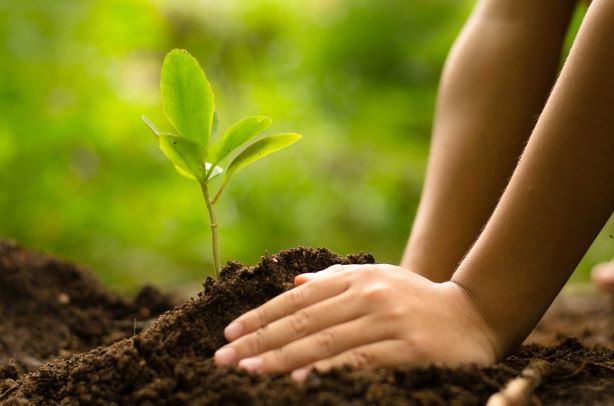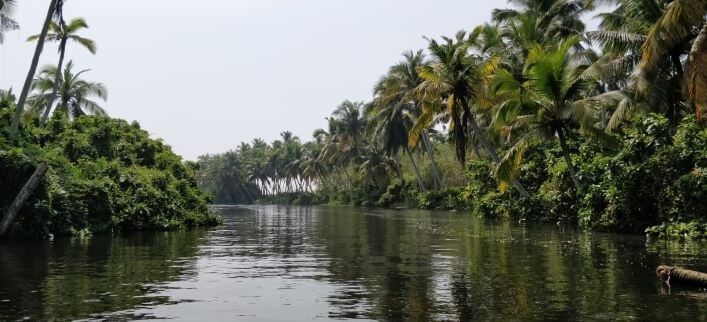Green Campuses: Plant 10 Trees To Get Admission In These Delhi Colleges

Taking the fight to the millennials and make their campuses more green, the Delhi Sikh Gurdwara Management Committee (DSGMC) has come up with a guideline that mandates all freshers at colleges run by DSGMC to plant 10 trees during the first year of their college.
As per the directive, any student taking admission in any of the nine colleges run by DSGMC has to sign an undertaking to plant 10 trees and take care of them until their final year. Currently, Four Delhi University (DU) colleges and five Guru Gobind Singh Indraprastha University (GGSIPU) Colleges/Institutes come under DSGMC.
The nine colleges run by DSGMC are:
- Sri Guru Tegh Bahadur Khalsa College
- Sri Guru Gobind Singh College Of Commerce
- Sri Guru Nanak Dev Khalsa College
- Mata Sundri College For Women
- Sri Guru Tegh Bahadur Institute of Management and IT
- Guru Tegh Bahadur Institute of Technology
- Guru Nanak College of Education
- Guru Ram Dass College of Education
- Guru Nanak Institute of Management
Keeping in mind the environmental emergency in Delhi, DSGMC has come up with this initiative. Manjinder Singh Sirsa, President of Delhi Sikh Gurdwara Management Committee, said, “We believe, today if the younger generation or millennials understand the environmental crisis and act upon it, they will be able to make it a better place to live in for generations to come. These students are fresh out of school and have a fresh mind and zeal to do something for the country.”
The student’s trees will be treated as a project and they will be asked to submit the report highlighting the status of the trees planted by them accompanied with photographs, on an annual basis, informed Mr. Sirsa.
DSGMC has asked colleges to identify land for tree plantation. Students can either plant trees in the area provided by their college which can be within the campus or outside the campus on MCD (Municipal Corporation of Delhi) land, or around their home. With this move, 55,000 trees will be planted this year, states Mr Sirsa.
Rajasthan wants Greener Campuses
Last week, the desert state of India Rajasthan, which has been reeling under acute water scarcity has also announced four new eco-conservation programs. The initiatives are specifically for the state-run engineering colleges, wherein all the first year students from the upcoming academic session will be required to plant at least one new tree at the college campus and look after it throughout their course duration.
The state government has ordered a plantation drive under which every new student in state-run engineering colleges will have to plant a tree in the campus, this academic session. This is among the 4 initiatives taken for eco-conservation on engineering campuses. #GreenRajasthan pic.twitter.com/GPDgubiVcr
— Govt of Rajasthan (@RajGovOfficial) July 5, 2019
The other three eco-conservation initiatives include digging ponds on campus for water conservation, monthly cleanliness drives and teaching students about Gandhian philosophy.
Explaining the initiative, an official from Rajasthan’s Technical Education Minister, Dr. Subhash Garg said, “There are 11 engineering colleges in Rajasthan in eight campuses and each of these colleges, on an average, has 300 seats. We hope more state-run colleges throughout the nation get inspired by our initiative and include eco-conservation programs in their academics for a greener and cleaner India.”
On May 15, the Philippines lower parliament approved a law that requires all graduating high school and college students to plant at least 10 trees each before they can graduate.
The Philippines’ Magdalo Party representative Gary Alejano, who was the principal author of the legislation, said: “With over 12 million students graduating from elementary and nearly five million students graduating from high school and almost 500,000 graduating from college each year, this initiative, if properly implemented, will ensure that at least 175 million new trees would be planted each year.”
In addition to the immediate carbon-absorbing impact of the trees, it is hoped the legislation will help bring environmental understanding to future generations and lead to further ecological initiatives.








